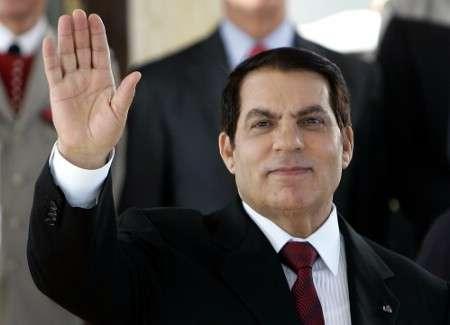Messages from Tunisia

What message should Tunisians and the peoples and governments of the Arab world and beyond take from the Tunisian uprising, asks Mohammed Hussainy. This article has been cross-posted from OpenDemocracy.net
Tunisia's revolt, which was triggered by the martyr Bouazezi's self-immolation and helped overthrow the "former" president, Zein Alabideen Bin Ali, carries many messages and lessons to be read and analysed.
It is an indicator of the direction of the political and humanitarian compass not only in Tunisia and the Arab region, but also across the globe – for what has taken in place in Tunisia is a global event par excellence.
The very first of such messages alludes to the jubilation with which Arab nations have welcomed the news; laymen in the Arab world received the news about Bin Ali's departure with a note of optimism, believing that the event will spark change in most of the Arab states ruled by totalitarian, corrupt regimes.
Although Bin Ali (pictured) is not the first Arab president to be overthrown in recent times – with Saddam Hussein's overthrow in Iraq perhaps the most notorious – the fact that Bin Ali has been brought down by his own people, without foreign intervention, and that this was a popular revolt rather than military coup, has been greeted with general satisfaction, unlike the controversy of the Iraq invasion.
Many political observers and analysts feel the wave of protest will not be restricted to Tunisia; they refer in this respect to demonstrations in Algeria and Jordan recently – though demonstrations in Jordan have been peaceful and have not called for the overthrow of the regime. Instead, the demand is for improved economic conditions and reform of the government's criticised economic policy, while reiterating faith in the monarchy as the defining identity of the state and guarantor of stability.
Tunisia's message will definitely find its way to the mailboxes of Arab rulers. There is a need to launch genuine political, economic and social reform processes more significant than the mere superficialities that the pan-Arab regimes have long practiced by hiding behind a "formal or pseudo-democracy", and ultra-nationalist or religious ideologies.
Tunisia has also highlighted the double-standards adopted by most democratic states, particularly the Europeans and the United States. Having been involved in occupying Iraq under the pretext that they wanted to help the Iraqi people against the dictatorship of Saddam Hussein, the US and many European nations refrained from advancing democracy and maintained a foggy attitude vis-à-vis what has been taking place in Tunisia. They have failed to justify their support for Bin Ali's regime – which is but one example that those democratic states are supporting non-democratic regimes in order to preserve their own vested interests.
By contrast, the Tunisian uprising has proved that the people remain the side that has the final say, and that any regime anywhere in the globe is bound to fall as long as it continues to distance itself from its people regardless of the size of support it receives from key powerful countries. History has already proved that powerful allies will not be able to protect such regimes if the people can no longer abjure injustice and oppression.
The third message has to do with Tunisia itself. The Tunisian people who offered the lives and blood of their sons for freedom should not fall into the trap that opportunists and power-addicts are trying to set up for them. The Tunisian people should know that these opportunists who benefited from Ben Ali's regime will not easily give up their interests and gains.
A case in point here is the fact that the Tunisian constitution was overlooked when the prime minister assumed power instead of allowing the house speaker to fill in the gap as per that constitution.
The Tunisian people should not be tricked by such a move, for the solution definitely does not lie in the hands of those who helped Bin Ali oppress his people. The solution to the current political crisis can be achieved through the formation of a national salvation government that represents all political factions in Tunisia.
The first task such a government should attend to will be to hold legislative and presidential elections as soon as possible, provided that such elections are run by an independent commission under local and international observation.
